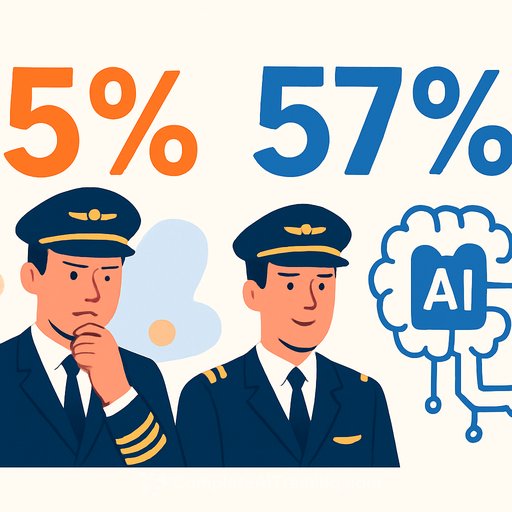Strategic AI Leadership in the Enterprise: How Lohitaksh Yogi is Pioneering Customer-Centric Innovation
August 12th, 2025 – Enterprise AI presents both vast opportunity and notable challenges. The global conversational AI market is expected to grow from USD 11.58 billion in 2024 to USD 41.39 billion by 2030, driven by consumer demand for instant, round-the-clock support. However, companies face hurdles like intricate data dependencies, a shortage of skilled talent, and security concerns. Successful AI implementation demands leadership that balances technical possibilities, customer needs, and business goals.
Lohitaksh Yogi stands out as a leader in this space. With a Master’s in Data Science and Machine Learning and product management credentials from Stanford University, he has led projects on platforms like ServiceNow and Adobe’s Virtual Agent. His approach centers on building intuitive AI products that improve customer experience and generate tangible business outcomes. He integrates continuous user feedback, ethical AI principles, seamless system integration, and prioritizes rapid return on investment.
From Data Science to Product Vision
Yogi’s path began with a strong technical background in data science, focusing on AI models. He explains, “What drew me to AI and product management was the potential to transform customer interactions and fuel business growth.” Transitioning into product management allowed him to apply technical expertise to broader strategic goals. His work on the Virtual Agent platforms at Adobe and ServiceNow reflects this vision: leveraging generative AI, large language models (LLMs), deep learning, and natural language processing (NLP) to deliver personalized, efficient support experiences.
Balancing Innovation with Impact
Delivering AI solutions that matter requires a clear focus on users and business impact. Yogi stresses thorough user research and behavior analysis to pinpoint where AI can add value. “I prioritize understanding user pain points to develop solutions that meet their specific needs,” he says. At the same time, his strategy ensures rapid business value by enabling quick setup, prebuilt conversations, and integrations. This approach minimizes wait times for customers and boosts operational efficiency.
Leading with ServiceNow’s and Adobe’s Virtual Agent Platform
Building enterprise-grade AI platforms is complex. One challenge was ensuring AI-generated responses were accurate and contextually relevant across multiple channels. Yogi’s team tackled this by using advanced generative models combined with pre-training, fine-tuning, and reinforcement learning from human feedback. Another breakthrough was creating an architecture that supports seamless integration with Adobe and ServiceNow ecosystems, third-party channels, and quick deployment tools. These features reduce setup time and encourage wider enterprise adoption.
Scaling Enterprise AI Reliably
Moving AI from pilot projects to full-scale enterprise deployments requires maintaining performance and reliability. Yogi highlights the importance of easy integration with existing systems to reduce friction and speed up value realization. Additionally, user-friendly design empowers non-technical users to manage AI interactions effectively. Continuous model improvement through advanced training techniques ensures ongoing accuracy and fairness as AI use expands across the organization.
Enhancing Accuracy with Retrieval Augmented Generation (RAG)
Generative AI sometimes produces incorrect or “hallucinated” information. To address this, Yogi’s teams implemented Retrieval Augmented Generation (RAG), combining LLMs with retrieval-based search. This method uses vector-based semantic search to fetch relevant documents from enterprise knowledge bases before generating responses, reducing errors significantly. Continuous monitoring and user feedback further refine the system, improving factual accuracy and boosting user trust.
The Future of Omnichannel and Multimodal AI
Over the next five years, AI assistants will evolve to process text, voice, video, and images simultaneously, creating more natural and context-aware interactions. Yogi anticipates these assistants will move beyond scripted responses to fluid conversations. Expanding globally requires mastering multilingual understanding and cultural nuances. Advanced multilingual LLMs and contextual translation models trained on regional data sets will be key to this evolution.
Commercial vs. Open-Source AI
Organizations must choose between commercial AI platforms and open-source alternatives. Commercial solutions offer faster deployment with prebuilt models and guided setups, ideal for those seeking quick implementation. Open-source platforms like Hugging Face and Rasa provide customization, control over tuning and integrations, and come without licensing fees but require technical expertise. The choice depends on strategic goals and the criticality of performance advantages offered by proprietary models.
Building Trust Through Ethical AI
Trust is fundamental for conversational AI adoption. It starts with transparency and fairness, avoiding “black box” models. Yogi advocates for clear ethical guidelines, monitoring, and auditing to ensure compliance and trustworthiness. User experience also matters—fallback mechanisms handle unexpected inputs gracefully, and consistent, friendly tone strengthens user confidence. Embedding these principles ensures AI systems are intelligent and dependable partners for customers.
Success in enterprise AI depends on leadership that blends vision with pragmatism. The approach demonstrated by leaders like Yogi shows that focusing on customer needs, measurable business returns, and ethical governance builds AI solutions that last. The future of AI in business lies not just in technology, but in its thoughtful application to drive sustainable growth.
Your membership also unlocks:










